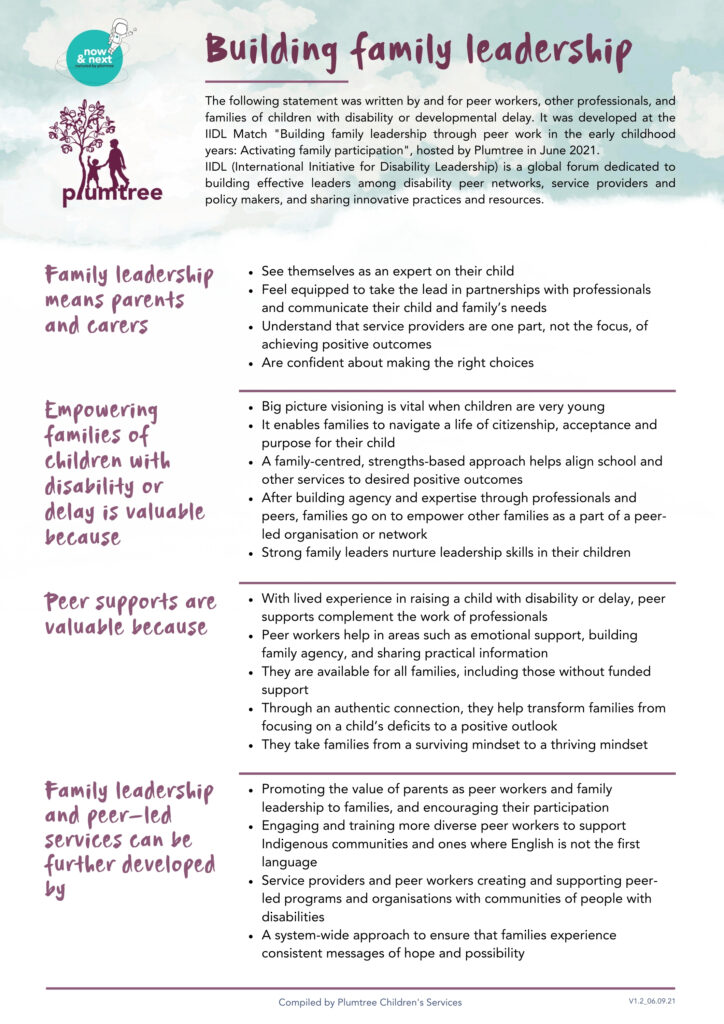Some parents of children with a disability or developmental delay may stand back and let service providers do the work. That’s understandable because therapists and other professionals are important—but they are a part of a bigger picture.
When children are little, family leadership plays a big role in building a good life. Parents see themselves as experts, too, with many skills that help their child develop. They understand that service providers are one part, not the focus, of achieving positive outcomes. Parent peer workers are an emerging workforce with training and lived experience in disability who can help families nurture these leadership values.
Peer workers, other professionals and families of children with disability or developmental delay attended an IIDL workshop, hosted by Plumtree, to discuss how family leadership can be activated during the early childhood years. IIDL (International Initiative for Disability Leadership) is a global forum dedicated to building effective leaders among disability peer networks, service providers and policymakers, and sharing innovative practices and resources.
Activating family leadership involves a system-wide change. Messages of hope and possibility upon diagnosis instead of the deficits, and a connection to a peer worker or peer-led service can be life-changing for families.
Peer supports are valuable because all families can access them, regardless of NDIS funding. With lived experience in raising a child with disability, parent peer workers can establish an authentic connection, and help in areas such as emotional support and sharing practical information. Their work complements the services of therapists and other professionals.
When families take the lead, they can envision the best outcomes for their child and align school and other services to achieve them. Strong family leadership also nurtures leadership qualities in their children.
Learn more and download the International Initiative for Disability Leadership Statement











